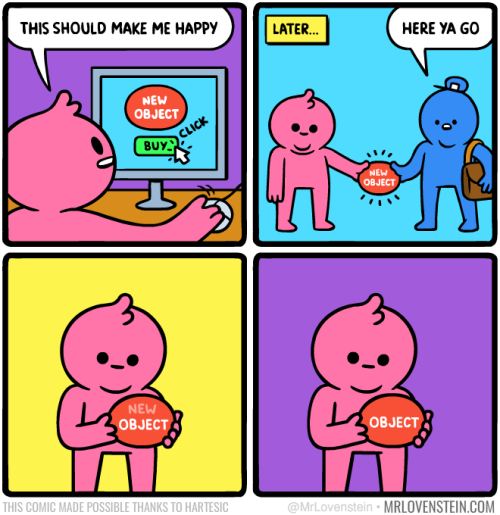Let’s face it, there’s no music without instruments. Even if the instrument of your choice is the human voice, you’re going to need at least some gear to record and reproduce it, and you’re going to need a lot of gear if you intend to set up even a small home studio.
Acquiring gear is therefore a necessity, but when lusting over gear begins to eclipse musical expression is when we enter the territory of the dreaded Gear Acquisition Syndrome (GAS). It’s like an itch that must be scratched. You get a temporary relief, but you’ve grown the rash… to use an apt metaphor.

GAS is a built-in mechanism of hyperconsumerism, which seems to have been amplified during the lockdowns with futile attempts to bury anxiety and depression under a pile of shiny new stuff. I’m very mindful of this phenomenon myself, but I’m hardly exempt from it. What follows is a set of techniques I’ve developed for dealing with this affliction.
1. Prevent GAS Before it Occurs
If it feels like you might have already contracted GAS, the first step is to create a healthy context that doesn’t foster the patterns that lead to needless purchases. Strength of will is not enough to cure an addiction without addressing the surroundings in which the addiction manifests. An alcoholic trying to abstain from drinking won’t get far with a bottle of booze sitting in their living room. You’re in the same boat, and coming to terms with that is the first step towards healthier buying habits.
Here are a couple of things I personally do in order to minimize GAS:
- Avoid the Prophets of Consumerism. Especially on YouTube, you’ll find people that make a living by doing the marketing for gear manufacturers. While these are branded as Gear Demos, most of them include some form of light sales pitch, or avoid discussing the shortcomings of products (everything is worth buying!). Unless they have an enormous following and independent income, their job depends on always presenting new products in a positive light.
- Unsubscribe from manufacturer communication. Remove yourself from newsletters and stop following social media accounts of companies that are always looking to sell you something. It’s OK to check their websites and other channels when you’re ready to make a planned purchase (we’ll get to that in a bit), but unsubscribe as soon as you’re done.
- Limit your budget. Make a financial plan of your spending and determine how much you’re able to spend on gear in a year (plan for monthly and quarterly budgets accordingly) and stick to it. Don’t let funding gear eat into your overall quality of life! Something might pop up unexpectedly on the used market or at a special discount that will make you go over you budget temporarily, but compensate for that by abstaining from buying for a while in order to stay within your planned budget.
- Limit your space. Don’t be surprised if you quickly end up filling whatever space you designate as your studio or music area. If that space is a whole garage, you might be in trouble. Have clearly defined boundaries and let your loved ones confiscate and auction off the gear that steps outside those boundaries. How’s that for some built in motivation?

2. Work With What You’ve Got
What’s the point of hoarding items that never see any use? Sweep that dust off and sell everything you don’t need. We’re musicians, not collectors! Someone else can get very creative with that instrument you keep packed away and waiting to be disposed off next to a dumpster by your relatives after you leave this world.
Keep only the gear that you need to make music, but give it a proper chance to shine first:
- Master the gear that you have. Dust off an old guitar, synth, effect or whatever and use it as the centerpiece of your next song. Entire genres were created using limitations of gear… surely you can muster up a single song. If you’re not sure how to do something, check the manual. You might be surprised to find that the people who know all the functions of an instrument are actually those that made it!
- Watch the pros. Getting good at something takes time, there’s no way around it. Inborn talent is minimal in endeavors that don’t require special physical gifts, everything else is practice. If you think a new piece of gear will revolutionize the way you make music the moment you open the box, think again. Learn the theory and then apply yourself.
- Sell what you don’t use. This one’s easy and it will go into funding gear that you actually need. But also think about why you bought the item you’re selling in the first place, if it doesn’t fit your needs? How will you avoid making the same mistake again?
Like what you’re reading? Sign up for more.
3. Mindful Shopping
If you’re still in the process of building up your studio or finding your sound, acquiring new gear is an inevitability. The key is to do it on your own terms, thoughtfully taking into account your true needs and honest spending power, instead of basing your decisions on what advertising is telling you about must-haves and game-changers.
Here are a couple of things to look out for when making a new purchase:
- Don’t let impulse be your guide. If you’ve done everything in your power to prevent GAS from getting triggered by external sources, you should be fairly safe from making knee jerk purchases. When the occasional bit of manipulative marketing does manage to seep through, learn to recognize it for what it is.
- Do the research. Be sure that you’re really getting what you need. I read the complete manual of Digitone Keys before getting it. It was a big investment for me, forming the brains of my process, and getting it wrong here would have been a costly mistake. When checking gear demos beware the above mentioned Prophets of Consumerism. Check Loopop for synthesizer gear as a great example of what real honest gear demos look like.
- Does the new piece of gear take you closer to your goals? How big of an improvement does it bring to your process? Is it 30% or 3% if you’re being honest? Why would you spend twice or three times the €/$ on an upgrade that’s not going to really take you to the next level?
- Wait. Just wait a week before you buy, one day at a time. Listen to music, use your existing gear in the meantime and make a clear headed decision once you’ve let the dopamine rush subside.
4. Wider Implications of Hyperconsumerism
Now that we’ve addressed the personal issues of GAS, it’s time to turn our attention towards the elephant in the room. All of these items we’re using to create and reproduce sounds don’t plop from some magical GearTree (although I did search that term and, of course, there’s a gear shop with that name).
Most consumer products that we take for granted are made by workers in conditions that no musician would ever approve of in a variety of (mostly) distant hellholes. I’m not talking about final assembly, but the actual raw material extraction, processing, transport, parts making and everything else that adds up to 90-100% of the work done. Here’s just a tiny sample of what I’m talking about from my neck of the woods.
This is something that people who love to repeat that “there’s no harm in hobbies” routinely omit to consider. The harm is being done elsewhere, but it is still exists. You can try and make the case that music gear is a small proportion of the overall problem, we’re not collecting cars after all! But every time you buy a new factory-made non-essential product, you’re actively becoming part of the problem. The very least we can do is go about it thoughtfully.

In conclusion, buying more things to treat anxiety, depression, blunt pain or fear will inevitably make things worse in the long run, and you know it deep down inside. Likewise, if you are expressing more emotions toward your stuff than to your loved ones, it’s probably time to seek professional mental help. I mean that in the sincerest way possible.
Instruments are tools, focus on the music, not the gear.
GAS? Just. Say. NO!
Here’s a good starting point for those looking to take this problem seriously.
What’s your experience with Gear Acquisition Syndrome? Speak up in the comments below.
Sign up for Monthly Blog and Music Updates
